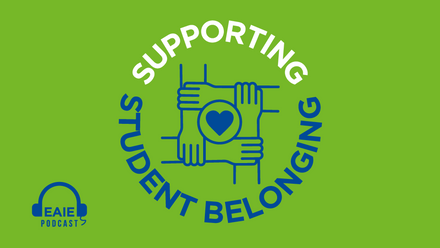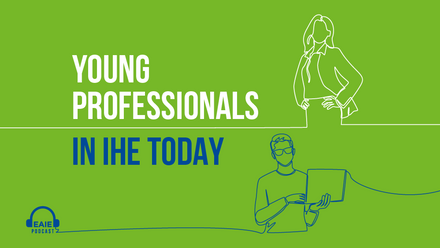Coaching students towards emotional health

Every university student constantly moves along the well-being continuum day to day and week to week. The demands of balancing academics, adjusting to living with roommates and navigating life more independently are just some of the factors which contribute to students’ fluctuating well-being. While some need clinical care to address their mental health, coaching adds a layer of support to help manage the ups and downs of their emotional well-being and bolster their resilience when facing challenges.
According to statistics from Active Minds, a prominent non-profit group that promotes mental health for young adults, “39% of students in college experience a significant mental health issue.” This mental health crisis has strained campus counselling centres and faculty alike, impacting the overall health and well-being of the entire campus community.
Enter coaching
Coaching is about helping a person make positive change. The relationship with a coach is designed to help a person meet their goals, live a fulfilling and purposeful life and improve overall performance. The purpose of working with a coach is to help articulate goals and desires, design a personalised plan to help reach goals, and make decisions based on what matters most. Lastly, coaching offers accountability to ensure a student’s desired growth and change.
Coaching is about helping a person make positive change
Offered consistently, coaching is a proven, proactive strategy to improve emotional health, and can help students’ time in university be purposeful and optimal. Typical results of coaching include: improved confidence and self-compassion, healthier relationships, awareness of what is needed to thrive, identification of locus of control, better time management, emotional regulation, and adoption of a growth mindset. Ultimately, coaching produces nimble, resilient and curious students!
A case study of David, a fourth-year student at a small, liberal arts college in the United States, demonstrates how coaching supports a student's desired change.
Case study: David’s story
David, a fourth-year student at a prestigious liberal arts college in the USA, reached out to me at my private coaching practice. His stated reason was to get help with his “procrastination and lack of planning,” which he described as having a “detrimental effect” on his sleep, physical and emotional health. David said that he had always had terrible sleep hygiene and had procrastinated throughout high school and college. But in his fourth year of university, he realised his habits were not only negatively impacting him but also his relationships. The negative impact on others was his impetus to reach out. He felt guilty and knew he needed help hitting the reset button. He shared that he had tried to make changes before, but “nothing ever stuck.” He liked the accountability coaching offered, and had come to realise that changing habits takes time, and that support in the process was best for him. David agreed to meet his coach over Zoom every other week for 60 minutes over a four-month span.
To start, David described his current state. “I feel like I have two very distinct, different lives: a weekday life full of academic stress where I am always behind and playing catch-up, and a weekend life that is 100% recreation and partying with little sleep or productivity of any kind. I have no middle ground. I work hard and play hard but it’s not working anymore.” David was then asked to describe his ideal lifestyle and what that would feel like. He described starting school work earlier than the night before the due date, keeping a neater room, and working on his personal growth, all while maintaining the amount of time he spent with friends, something very important to him. The gap between his current and ideal lifestyle was becoming more pronounced to David, and most importantly, David’s ‘why’ driving the desire for change was clear as well. “I’m hurting and disappointing the people I care about, including myself. I need more balance.” To help David cast less judgement on himself and evoke more curiosity, the coach used a common coaching tool, to frame this gap metaphorically. David went on, “Right now, if my life were a light switch, it would only have an on or off switch, no dimmer mode. I need a dimmer mode on my light switch!”
Coaching for ‘dimmer mode’
Science shows that change is more likely to happen and stick when the mind and body are connected and a positive emotion is associated with the desired change. In establishing how he wanted to feel (“positive, rested and ready”), David decided he wanted Monday mornings to become his barometer. He anticipated that waking up on Monday feeling prepared for the week would relieve his stress and guilt of having a “slacker weekend.” The coach helped him visualise his Monday morning routine: up early, homework complete, room clean and feeling “ready.” As typical in coaching, he determined his weekly commitment and reporting back to his coach was his desired accountability. His coach asked questions like, “How can you honour your value of spending Sundays with friends watching football while also honouring your desire to feel more prepared for the week?” David’s solution: fold laundry during commercials! For David, it was the experimenting mindset while simultaneously reflecting on the impact of his attempted micro-changes that helped him make meaning of his changes. The ripple effect of his choices was becoming more clear and he was closer to ‘dimming the lights’.
One of coaching’s main purposes is to increase a person’s self-awareness and empower them to make decisions that are in their best interest
One of coaching's main purposes is to increase a person’s self-awareness, and when a person is more self-aware they feel empowered to make decisions that are in their best interest. David understood and felt the ripple effect of his choices. “I enjoyed talking out loud to someone removed from my personal life. It helped me really think about what I wanted from coaching and what I enjoyed in my everyday life. It gave me the tools and awareness to move forward in the right direction. It had a positive effect on my mental health due to decreased stress levels, improved organisation, and a better sleep schedule.”
While David benefitted from hiring a private coach, universities have an opportunity to enrich their current support structures by implementing a coaching approach. With the overwhelming numbers of students struggling with their emotional health, coaching offers another layer of support and an opportunity to empower students to optimise their university experience.






